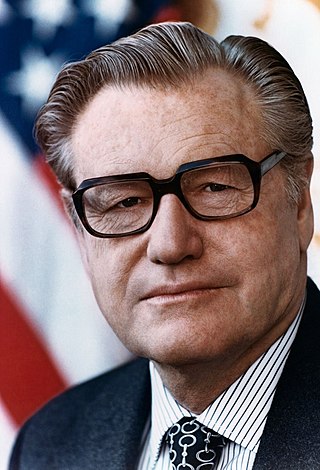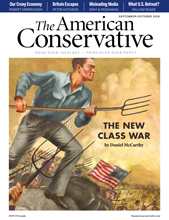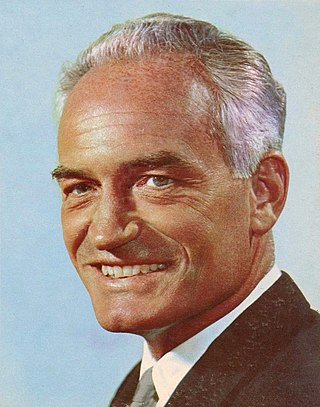Conservatism is a cultural, social, and political philosophy and ideology, which seeks to promote and preserve traditional institutions, customs, and values. The central tenets of conservatism may vary in relation to the culture and civilization in which it appears. In Western culture, depending on the particular nation, conservatives seek to promote a range of institutions, such as the nuclear family, organized religion, the military, the nation-state, property rights, rule of law, aristocracy, and monarchy. Conservatives tend to favour institutions and practices that enhance social order and historical continuity.

The Republican Party, also known as the GOP, is one of the two major contemporary political parties in the United States. It emerged as the main political rival of the Democratic Party in the mid-1850s.
Libertarians promote individual liberty and seek to minimize the role of the state. The abortion debate is mainly within right-libertarianism between cultural liberals and social conservatives as left-libertarians generally see it as a settled issue regarding individual rights, as they support legal access to abortion as part of what they consider to be a woman's right to control her body and its functions. Religious right and intellectual conservatives have attacked such libertarians for supporting abortion rights, especially after the demise of the Soviet Union led to a greater divide in the conservative movement between libertarians and social conservatives. Libertarian conservatives claim libertarian principles such as the non-aggression principle (NAP) apply to human beings from conception and that the universal right to life applies to fetuses in the womb. Thus, some of those individuals express opposition to legal abortion. According to a 2013 survey, 5.7/10 of American Libertarians oppose making it more difficult for a woman to get an abortion.

The Rockefeller Republicans were members of the United States Republican Party (GOP) in the 1930s–1970s who held moderate-to-liberal views on domestic issues, similar to those of Nelson Rockefeller, Governor of New York (1959–1973) and Vice President of the U.S. (1974–1977). Rockefeller Republicans were most common in the Northeast, the Upper Midwest, and West Coast states, while they were rare in the South and Mountain West.
Paleolibertarianism is a libertarian political activism strategy aimed at uniting libertarians and paleoconservatives. It was developed by American anarcho-capitalist theorists Murray Rothbard and Lew Rockwell in the American political context after the end of the Cold War. From 1989 to 1995, they sought to communicate libertarian notions of opposition to government intervention by using messages accessible to the working class and middle-class people of the time. They combined libertarian free market views with the cultural conservatism of Paleoconservatism, while also opposing protectionism. The strategy also embraced the paleoconservative reverence for tradition and religion. This approach, usually identified as right-wing populism, was intended to radicalize citizens against the state. The name they chose for this style of activism evoked the roots of modern libertarianism, hence the prefix paleo. That founding movement was American classical liberalism, which shared the anti-war and anti-New Deal sentiments of the Old Right in the first half of the 20th century. Paleolibertarianism is generally seen as a right-wing ideology.

The American Conservative (TAC) is a magazine published by the American Ideas Institute which was founded in 2002. Originally published twice a month, it was reduced to monthly publication in August 2009, and since February 2013, it has been published once every two months.
In American politics, a Libertarian Republican is a politician or Republican Party member who has advocated Libertarian policies while typically voting for and being involved with the Republican Party.
The Republican Party in the United States includes several factions, or wings. During the 19th century, Republican factions included the Half-Breeds, who supported civil service reform; the Radical Republicans, who advocated the immediate and total abolition of slavery, and later advocated civil rights for freed slaves during the Reconstruction era; and the Stalwarts, who supported machine politics.

Frank Straus Meyer was an American philosopher and political activist best known for his theory of "fusionism" – a political philosophy that unites elements of libertarianism and traditionalism into a philosophical synthesis which is posited as the definition of modern American conservatism. Meyer's philosophy was presented in two books, primarily In Defense of Freedom: A Conservative Credo (1962) and also in a collection of his essays, The Conservative Mainstream (1969). Fusionism has been summed up by E. J. Dionne, Jr. as "utilizing libertarian means in a conservative society for traditionalist ends."
Conservatism in the United States is based on a belief in limited government, individualism, traditionalism, republicanism, and limited federal governmental power in relation to U.S. states. Conservative and Christian media organizations and American conservative figures are influential, and American conservatism is a large and mainstream ideology in the Republican Party and nation. As of 2021, 36 percent of Americans consider themselves conservative, according to polling by Gallup, Inc.
Conservatism in Canada is generally considered a movement which is primarily represented by the modern-day Conservative Party of Canada in federal party politics, as well as various centre-right and right-wing parties at the provincial level. Far-right politics have never been a prominent force in Canadian society. The first party which called itself "Conservative" in what would become Canada was elected in the Province of Canada election of 1854.
Right-libertarianism, also known as libertarian capitalism, or right-wing libertarianism, is a libertarian political philosophy that supports capitalist property rights and defends market distribution of natural resources and private property. The term right-libertarianism is used to distinguish this class of views on the nature of property and capital from left-libertarianism, a type of libertarianism that combines self-ownership with an egalitarian approach to property and income. In contrast to socialist libertarianism, right-libertarianism supports free-market capitalism. Like most forms of libertarianism, it supports civil liberties, especially natural law, negative rights, the non-aggression principle, and a major reversal of the modern welfare state.
In American politics, fusionism is the philosophical and political combination or "fusion" of traditionalist and social conservatism with political and economic right-libertarianism. Fusionism combines "free markets, social conservatism, and a hawkish foreign policy". The philosophy is most closely associated with Frank Meyer.

Libertarian conservatism, also referred to as conservative libertarianism and conservatarianism, is a political and social philosophy that combines conservatism and libertarianism, representing the libertarian wing of conservatism and vice versa.
Green conservatism is a combination of conservatism with environmentalism. Environmental concern has been voiced by both conservative politicians and philosophers throughout the history of conservatism. One of the of most prominent early philosophers of conservatism, Edmund Burke, in his Reflections on the Revolution in France (1790), quoted as saying: "The earth, the kind and equal mother of all ought not to be monopolised to foster the pride and luxury of any men."
GOProud was an American tax exempt 527 organization supported by fiscally conservative gay men, lesbians, and their allies. GOProud advocated for free markets, limited government, and a respect for individual rights and worked at the federal and state levels to build strong coalitions of liberal conservative and libertarian activists, organizations and policy makers to advance their shared values and beliefs.
Social conservatism in the United States is a political ideology focused on the preservation of traditional values and beliefs. It focuses on a concern with moral and social values which proponents of the ideology see as degraded in modern society by liberalism. In the United States, one of the largest forces of social conservatism is the Christian right.

This timeline of modern American conservatism lists important events, developments and occurrences which have significantly affected conservatism in the United States. With the decline of the conservative wing of the Democratic Party after 1960, the movement is most closely associated with the Republican Party (GOP). Economic conservatives favor less government regulation, lower taxes and weaker labor unions while social conservatives focus on moral issues and neoconservatives focus on democracy worldwide. Conservatives generally distrust the United Nations and Europe and apart from the libertarian wing favor a strong military and give enthusiastic support to Israel.

The Intercollegiate Studies Institute (ISI) is a nonprofit educational organization that promotes conservative thought on college campuses.
The platform of the Republican Party of the United States has historically since 1912 been based on American conservatism, contrasting with the modern liberalism of the Democratic Party. The positions of the Republican Party have evolved over time. Currently, the party's fiscal conservatism includes support for lower taxes, gun rights, government conservatism, free market capitalism, free trade, deregulation of corporations, and restrictions on labor unions. The party's social conservatism includes support for gun rights outlined in the Second Amendment, the death penalty, and other traditional values, often with a Christian foundation, including restrictions on abortion. In foreign policy, Republicans usually favor increased military spending, strong national defense, and unilateral action. Other Republican positions include opposition to illegal immigration, drug legalization, pornography and affirmative action, and support for school choice and school prayer.







